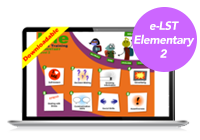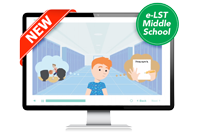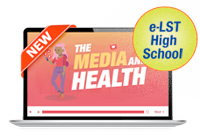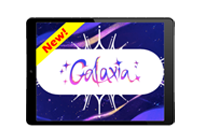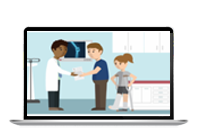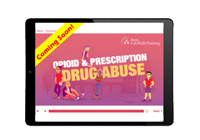WHAT IS THE BOTVIN LIFESKILLS TRAINING PROGRAM? Botvin LifeSkills Training (LST) is an evidence-based substance abuse and violence prevention program used in schools and communities throughout the US and in 39 countries around the world. LST has been extensively tested and proven to reduce tobacco, alcohol, and illicit drug use by as much as 80%. It is effective when implemented with different delivery formats, when taught by different providers, and when delivered to different populations. It also works with elementary school, middle school, and high school students. Long-term follow-up studies show that it produces prevention effects that are durable and long-lasting.
WHAT ARE THE MAIN GOALS OF THE LST PROGRAM? The main goals of the LST program are to teach prevention-related information, promote anti-drug norms, teach drug refusal skills, and foster the development of personal self-management skills and general social skills.
HOW LONG IS THE LST PROGRAM AND HOW IS IT STRUCTURED?
The LST Elementary School program consists of 8 class sessions per year across all three years of upper elementary school. The elementary program can be implemented over one, two, or three years, depending on the availability of time. It is designed to be implemented either as a stand-alone program or in combination with the Middle School program
The LST Middle School program is designed to be taught in sequence over three years in either middle or junior high school. The first year of the program has 15 class sessions (plus 3 optional violence prevention sessions), the second year contains 10 sessions (plus 2 optional violence prevention sessions), and the third year consists of 5 sessions (plus 4 optional violence prevention sessions).
The LST High School program comprises 10 class sessions. The LST Transitions program has 6 class sessions. Each program is typically taught in one year and can be used alone or as maintenance programs in combination with other LST programs.
DOES THE ENTIRE CURRICULUM NEED TO BE TAUGHT FOR THE PROGRAM TO BE EFFECTIVE? In order to be optimally effective, the LST program must be implemented carefully and completely. If the material is only partially covered, studies have shown the program is likely to be less effective. Implementation fidelity means teaching every unit of the program, in the sequence provided, for the specific number of sessions.
Fidelity is achieved by observing and practicing the following guidelines:
- Teach the full scope and sequence of the LST Curriculum. Teach all lessons in the order given, making all of the teaching points in each lesson.
- Teach at least one time per week for consecutive weeks until all units are taught. The curriculum may be taught as an intensive mini-series (consecutively every day, or two to three times a week), or it can be taught once a week.
- Use interactive teaching strategies. Students acquire skills when interactive teaching skills (coaching, facilitation, behavioral rehearsal, and feedback) are used.
- Implement using the LST program materials. Provide each teacher with a Teacher’s Manual and each student with his or her own Student Guide.
IN WHAT ENVIRONMENT SHOULD LST BE TAUGHT? LST has been successfully taught in a variety of settings including school classrooms, after-school programs, summer camps, and community- and faith-based organizations.
WHO SHOULD TEACH THE LST PROGRAM FOR IT TO BE EFFECTIVE? The LST program is easy to use and can be effectively implemented by teachers, school counselors, prevention specialists, community youth educators, and other program providers.
IS LST EVIDENCE-BASED? LST is the most widely used evidence-based tobacco, alcohol, drug abuse, and violence prevention programs available. It is also one of the most comprehensive and rigorously tested prevention programs in America today. LST has been extensively tested and proven effective both by Dr. Botvin and colleagues at Cornell University’s Weill Cornell Medical College and by a number of independent research groups.
HOW EFFECTIVE IS LST? Studies testing the effectiveness of LST show that it can reduce the prevalence of tobacco, alcohol, and illicit drug use by as much as 80%. It can also reduce multiple drug use by up to 66%. Research conducted for the elementary version of the program shows a 60% reduction in tobacco and alcohol use as well as increased self-esteem. LST has also been shown to reduce violent and aggressive behavior.
IS LST A GOOD INVESTMENT? Several independent studies show that LST makes good economic sense. The results of analyses examining the costs and economic benefits of LST have typically found that it produces a $45 savings for every $1 spent.
DO THE REDUCTIONS IN DRUG USE PRODUCED BY LST LAST? Yes. Several studies show that the LST program produces reductions in drug use that are long-lasting. Studies published in top scientific journals such as the Journal of the American Medical Association (1995), Addictive Behaviors (2000), the Archives of Pediatrics and Adolescent Medicine (2006), and the American Journal of Public Health (2013) or presented at major scientific conferences (2012) show that LST produces effects on drug use that last for up to 12 years after the initial baseline assessment. That means the effects of LST can last through high school and college and even into young adulthood.
WHAT DEMOGRAPHIC DOES LST WORK FOR? The LST program has been tested with a broad range of adolescents. So far, it has proven effective for every type of adolescent. Evaluation studies show that it works for Caucasian, Black, and Hispanic youth. It also works for boys and girls, and for adolescents living in suburban, urban, and rural environments.
WHAT AGE GROUPS DOES LST WORK FOR? LST has been tested and proven effective with several different age groups. So far, studies have shown that LST is effective with students in elementary school, middle/junior high school, and high school. Age-appropriate curriculum materials are available for each age group.
WHAT MAKES THE LST PROGRAM MORE EFFECTIVE THAN OTHER PROGRAMS? One of the distinguishing features of the LST program is that it is based on sound science. Many contemporary prevention programs are based on hunches, guesses, and wishful thinking. The LST program, however, is based on over 35 years of research concerning the causes of drug abuse and how to best prevent it. Another distinguishing feature of the LST program is that it emphasizes the use of interactive teaching methods.
ARE ALL “LIFE SKILLS” PROGRAMS EQUALLY EFFECTIVE? Several programs now use “life skills” in their title or refer to themselves as “life skills” programs. But only the Botvin LifeSkills Training program has been subjected to extensive testing in over 35 rigorous evaluation studies and proven to decrease adolescent tobacco, alcohol, and illicit drug use.
DO TEACHERS NEED TO BE TRAINED?
For best results, it is highly recommended in order to achieve optimal program results. LST Provider Training is designed to prepare providers to deliver the curriculum with content and process fidelity. Provider training increases the effectiveness of the program and assists providers in developing implementation strategies for the program’s comfort and fit in individual sites.
WHAT TYPES OF TRAINING SERVICES ARE AVAILABLE FOR THE BOTVIN LIFESKILLS TRAINING PROGRAM?
NHPA offers four types of Provider Training workshops designed to enhance the confidence and skill capacity of program providers: Core Trainings, Booster Trainings, Trainer of Trainers (TOT), and Technical Assistance. All LST Provider Trainings are conducted by qualified trainers who are certified by National Health Promotion Associates. Training workshops are offered in two formats: traditional face-to-facetraining as well as online training, an increasingly popular alternative.
WHAT IS TECHNICAL ASSISTANCE (TA)?
Technical assistance (TA) is designed to be timely, flexible, user friendly, and tailored to the specific needs of individual providers/sites. Technical assistance and support is provided by certified LST trainers and technical assistance support staff. Based on over a decade of experience, we have organized technical assistance and support for LST in a hierarchical manner designed to match the level of technical assistance and support with the needs of the providers/sites. These technical assistance support services range from e-mail and web-based assistance and support, to telephone assistance and support, to onsite consultation and formal technical assistance workshops.
WHAT TYPES OF TECHNICAL ASSISTANCE DO YOU OFFER?
Web-based: The LST website is designed to be user friendly, engaging and informative. Browsing through our website often provides the answers to the general questions that first-time implementers of LST may have. In addition, many of the same technical assistance issues are common to different providers and sites. Answers to these Frequently Asked Questions (FAQs) can found at: https://lifeskillstraining.com/faq.php
E-mail: If answers to TA questions cannot be found on our website, they can often be answered by e-mail by sending your questions to lstinfo@nhpamail.com. E-mail questions are answered by a member of our training support staff. E-mail allows for quick turnaround to clients’ requests.
Telephone: For issues that are not address by the FAQs on our website and cannot be readily addressed via e-mail, technical assistance and support is available by telephone. Technical assistance and support staff members are assigned to specific regions of the country and are able to provide answers to a wide range of TA questions. Where appropriate, TA questions may be referred to one of our trainers.
Onsite consultation: For more complex technical assistance and support issues that cannot be addressed through email, our website, or telephone technical assistance and support channels, onsite technical assistance is available. This support service is customized to the needs of the specific site and delivered by certified LST trainers.
Onsite technical assistance workshop: For some larger implementation sites, a more formal and structured form of technical assistance can be both useful and feasible. The following are examples of formal technical assistance workshops that have been designed for sites with particular needs:
A Six-Step, Site-Based Plan for Implementing LST in a school or community
Cultural Approaches to Prevention Education
Classroom Assessment and Outcome Evaluation for the LST program
HOW CAN I GET TECHNICAL ASSISTANCE?
The following will help you get the support you need and in a format that best fits the needs of you and your colleagues:
Step 1: Identify the specific issue for which you need technical assistance (TA).
Please browse through our website or consult our Frequently Asked Questions (FAQs) to determine if the support you need is provided on our website.
Step 2: If the information you need is not contained on our website, contact us by either by e-mail or telephone.
Contact us by e-mail at training@nhpamail.com or contact us by telephone at (914) 421-2525.
Step 3: Once we have determined your technical assistance needs, our staff will work with you to determine the best form of technical assistance for your site.
We are dedicated to making your LifeSkills Training experience as positive and successful as possible. We look forward to working with you. For more information on training and technical assistance costs, please email us at training@nhpamail.com or call the LifeSkills Training National Training Department at 914-421-2525.
ARE THERE ADDITIONAL RESOURCES THAT I CAN ACCESS?
Our past experience over more than a decade indicates that many potential problems can be identified and avoided through careful planning. Therefore, we have developed materials to facilitate planning and implementation of the LST program.
- LST Planning Workbook
This useful tool is designed to help schools and communities understand the effective prevention education strategies, conduct a needs assessment of their student population, and develop a plan for implementing the LST program. This planning workbook is the first step in the technical assistance process. - Universal Learning Standards
Many school districts have requested that the LifeSkills Training program be aligned to their state standards. The LST Universal Learning Standards Alignment matches the program’s objectives to a universal standard that helps sites align the program to specific state educational standards.
WHAT MATERIALS ARE NEEDED TO TEACH THE LST PROGRAM? LST is a self-contained, teacher friendly, and easy-to teach curriculum. One of the strengths of the LST program is its simplicity. It only requires a Teacher’s Manual and the Student Guide for each student. Audio CDs containing relaxation exercises, a Smoking & Biofeedback DVD, CD-ROMs, and companion websites are also available to supplement the curriculum.
WHAT ABOUT THE BOOSTER SESSIONS? Research shows that booster sessions are important both to maintain the initial (year 1) prevention effects (usually administered in either 6th or 7th grade) and to increase the long-term impact of the LST program. In other words, students who receive booster sessions derive a greater benefit from the program than those who receive only one year of LST (e.g., Botvin et al., 1983, J Behav Med; Botvin et al. (2001, Prev Science). Research also indicates that students who have received all three years of the LST program (the primary year plus two years of booster sessions) showed the strongest prevention effects (e.g., Botvin, Baker, Dusenbury, Botvin, & Diaz, published in the Journal of the American Medical Association, 1995). The proper timing of booster sessions based on our research is each of the two years after the initial year of the prevention program. For example, if the initial year of the program is grade 7, then booster sessions would be administered in grades 8 and 9. The bottom line: Studies published in scientific journals prove that LST is an effective prevention program that reduces substance use, violence, and other health risk behaviors, and that students who receive the LST program (year 1) plus two years of booster sessions (years 2 and 3) derive the greatest benefit.
IS THERE A SPANISH VERSION OF LST AVAILABLE? The Parent program is available in Spanish.
IS THERE AN LST PROGRAM FOR PARENTS? The LST Parent Program is a powerful prevention resource for parents of children ages 11-14. The program is designed to help parents and caregivers improve general parenting skills that help to promote pro-health behaviors and foster family communication through activities for parents and their children. A workshop version of the LST Parent Program is also available, designed to offer sites both tailored and flexible workshop options.
DOES LST OFFER MULTIMEDIA TOOLS TO SUPPORT THE PROGRAM? The LST Elementary CD-ROMs are exciting, animated programs that teach children valuable skills for life and that supplement the LST Elementary School Program. The LST Middle School 101: Skills for Success CD-ROM is an engaging video-based CD-ROM that supplements the LST Middle School program in computer labs or individual self-study at home.
WHAT IS BOTVIN LIFESKILLS TRAINING’S POLICY ON TOBACCO FUNDING?Over the past few years, some tobacco companies have offered funding for youth smoking prevention programs to states, schools, and local agencies.
Before accepting funds for smoking prevention programs from any tobacco company, we encourage interested individuals to consult the website of the Center for Disease Control and Prevention and review it’s guidelines concerning private funding for smoking prevention programs. Our own policy is to not accept funds from any tobacco company. We have never accepted funding from any tobacco company for the evaluation, updating, promotion, or for any other aspect of the Botvin LifeSkills Training program.
Everyone associated with the LST program is fully committed to preventing tobacco use by America’s youth. We strongly urge anyone interested in implementing the LST program to follow the CDC’s guidelines in order to determine the most appropriate source of funding for this effective and well-respected prevention program.
Is There a Toll-Free Number for the Botvin LifeSkills Training Program?
Yes. For more information about Botvin LifeSkills Training, please contact:
National Health Promotion Associates
711 Westchester Avenue
White Plains, NY 10604
Phone: 800-293-4969
Fax: 914-421-2007
Email: LSTinfo@nhpamail.com










